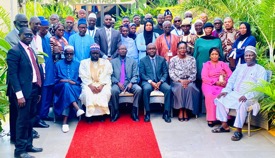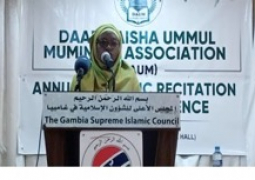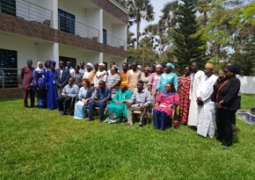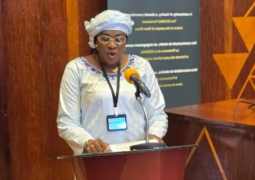
Organised by the Judiciary of the Gambia in partnership with the American Bar Association, the event also sought to strengthen the administration of justice by improving the quality of services and the professionalism of Gambian justice sector personnel and enhancing accountability of the justice system.
Sandra Oryema, country representative, American Bar Association (ABA), Rule of Law Initiative, stated that their responsibilities as commissioners for oath, justices of the peace, and notaries public were not merely procedural.
She noted that they were ethical imperatives that ensure fairness, transparency, and accountability.
“Every oath you administer, every document you notarize, and every decision you witness carries with it the weight of public confidence in the justice system.”
The training, she added, is critical in view of the fact that it was aimed at strengthening their understanding of the ethical principles that guide their duties-integrity, impartiality, and professionalism.
Representative of the Chief Justice of The Gambia, Justice Omar M.M. Njie, said the training forms an integral part of the Judiciary's Strategic Plan 2021-2025, serving as a significant step toward cultivating integrity, ethical conduct, and excellence in their respective roles.
“As key players in the justice delivery chain, Notaries Public, Commissioners for Oaths, and Justices of the Peace carry a profound responsibility to uphold and safeguard public trust in our legal system.”
Justice Njie informed that it was through their unwavering commitment to integrity, impartiality, and professionalism that they could continue to strengthen the public's confidence in their justice system and urged them to take advantage of such opportunity for professional growth.
Alhaji Amadou Touray, president of the Association of Notaries, Commissioners of Oaths and Justice of the Peace, said the training could not have come at a better time, saying ‘it would give them the opportunity to interact and also give them the sound knowledge about the roles, responsibilities and limitations of various categories of commissioners.’
He, thus, recalled the achievements and challenges they encountered as commissioners and applauded the Chief Justice of the Gambia for supporting them through and allocating an office to them. He also expressed gratitude to the partners that made the training possible.





